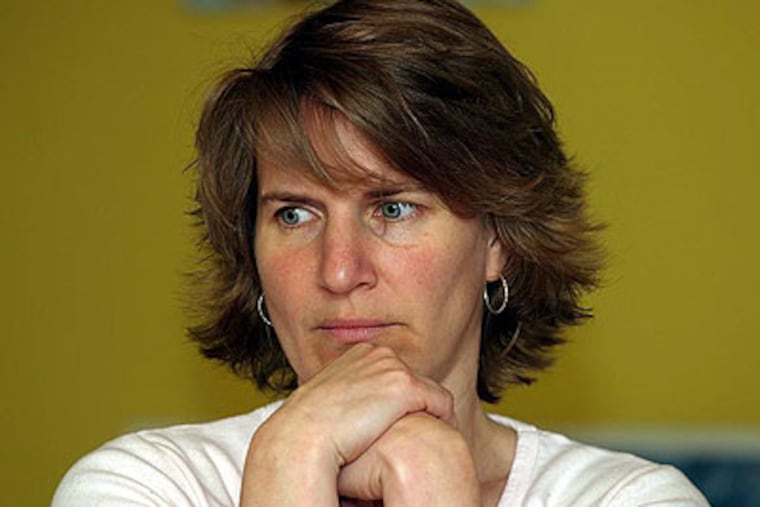Anti-drilling advocate van Rossum quits coalition
A leading advocate against Marcellus Shale drilling in the Delaware River basin has resigned from a coalition of civic organizations because she says the group will not take a harder stand against shale-gas development.

A leading advocate against Marcellus Shale drilling in the Delaware River basin has resigned from a coalition of civic organizations because she says the group will not take a harder stand against shale-gas development.
Maya K. van Rossum, who heads the Delaware Riverkeeper Network, said Friday she had stepped down from the Citizens Marcellus Shale Commission to protest the group's final report, which will be issued Monday.
Van Rossum said the commission declined to support a moratorium on natural-gas development, as the Riverkeeper Network has advocated.
"In the final analysis, the commission's leadership insisted on what they deemed a politically palatable report, rather than one which fully served to seek protections from known harms and informational deficiencies associated with shale gas development," van Rossum said in a statement.
The citizens commission, which includes 18 members representing environmental, labor, and civic groups, was formed in August as a political counterweight to a panel that Gov. Corbett appointed to advise him on shale-gas policy. Corbett supports drilling.
The coalition held five hearings in September.
"I think the people who came out to the hearings will be disappointed with the results," van Rossum said in a telephone interview Friday.
A spokesman for the citizens commission, Christopher Lilienthal of the Pennsylvania Budget and Policy Center, declined to comment on the rift. He said the group's members had not finalized the language of the final report on Friday, "so any comment on its content is premature."
The resignation underscores the challenges that advocacy groups have at arriving at a unified position on shale-gas development, which has increased dramatically in Pennsylvania in the last three years.
Some advocacy groups argue that gas development in Pennsylvania is a fait accompli from which the state is already deriving economic benefits, and that activists should focus on improving environmental protection and pushing for more taxes on the industry.
But groups such as the Riverkeeper Network say that shale-gas extraction is harmful and should be halted across the state until the effects of drilling and hydraulic fracturing are studied further.
Statewide polls of Pennsylvanians have generally shown conditional support for Marcellus drilling. A Quinnipiac University poll in September found voters say, 62-30 percent, that the economic benefits of shale gas outweigh environmental concerns. Even Democrats back drilling, 50-41 percent.
The Riverkeeper Network, based in Bristol, has been engaged in a four-year effort to stop the Delaware River Basin Commission from adopting rules that would allow drilling to occur in the sensitive Delaware watershed, over which the interstate agency has jurisdiction.
Several exploratory wells were drilled in the Delaware basin, but no commercial drilling has taken place while the DRBC has been drafting its rules.
The DRBC is scheduled to vote on the new rules Nov. 21.
If approved, a ban on drilling in the Delaware watershed would be lifted, at least in Pennsylvania. New York state, which has a statewide ban on hydraulic fracturing, is considering lifting its moratorium in areas outside the New York City and Syracuse watersheds.
Though the Marcellus underlies a swath of the Delaware watershed, the area in Pennsylvania considered prospective for gas development is limited to the state's northeast corner, in part of Wayne County.